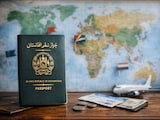Aviation workers, including pilots, flight crew members, air traffic controllers and aircraft maintenance engineers will be tested for psychoactive substances such as cannabis, cocaine and ecstasy by their employers, the draft rules issued by aviation regulator DGCA read.
"The worldwide spread of the use of psychoactive substances, their general availability and the ever-increasing number of addicted users is a serious concern to aviation safety," the draft rules mentioned.
Airlines and air navigation service providers will have to carry out random drug tests on at least five per cent of the flight crew members and air traffic controllers employed by them every year, stated the draft rules of the Directorate General of Civil Aviation (DGCA).
The draft rules mentioned that commercial aircraft operators, maintenance and repair organisations, flying training organisations and air navigation service providers will also have to carry out drug tests before employing any person or admitting a trainee pilot.
These organisations will also have to test all those aviation personnel - at the first available opportunity - who have refused a drug test to a foreign regulator during flight operations in that country, the draft rules stated.
"All aviation workers will be tested for the following psychoactive substances - amphetamine, methamphetamine, cannabis, cocaine, opioids, barbiturates, benzodiazepine and MDMA or ecstasy," the draft rules read.
Whenever an aviation staffer tests positive in a drug test, the DGCA must be informed within 24 hours.
Companies in the aviation sector should encourage their employees to self-declare any use of psychoactive substances, the draft rules mentioned.
"Such employees shall be subjected to rehabilitation process by the organisation before return to active duty. The number of such cases shall be reported to DGCA on a six-month basis," the rules said.
If a drug test returns positive, the employee will be immediately removed from duty till a confirmatory report is received, the draft rules mentioned.
If the confirmatory test - which is being done for the first time - is also positive, then the employee will be referred to a de-addiction centre by the organisation for a de-addiction and rehabilitation programme.
"Such an employee shall return to active duties again after having undergone the tests for the consumption of the psychoactive substance with a negative test report. In addition, clearance by treating psychiatrist and the certification by the medical in-charge of the organisation concerned shall be required," the rules stated.
If a person is found positive in a drug test a second time during work, his or her licence will be suspended for three years and it will be cancelled if the tests return positive for a third time.
(Except for the headline, this story has not been edited by NDTV staff and is published from a syndicated feed.)















